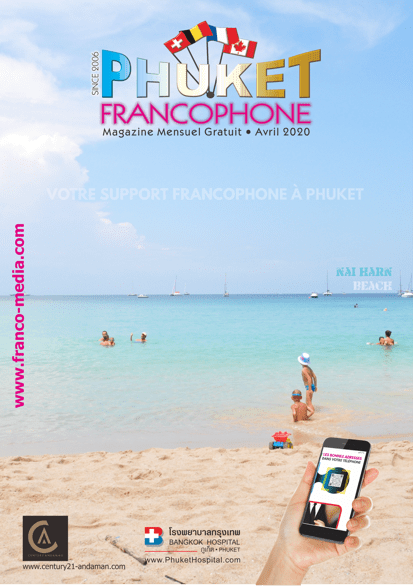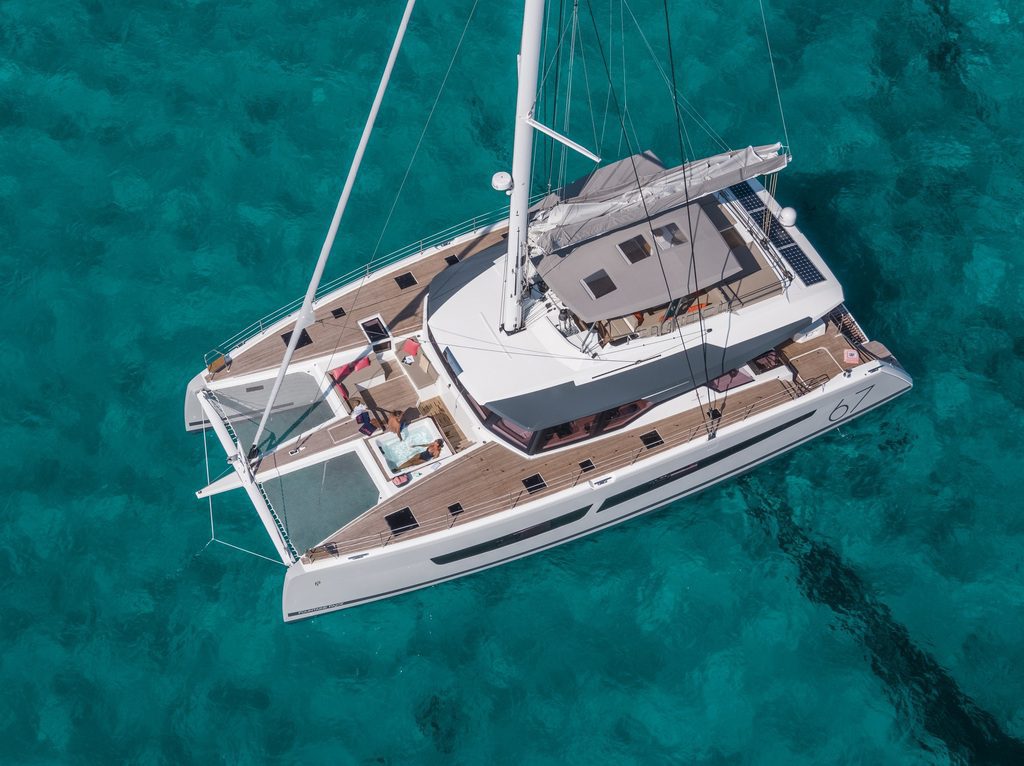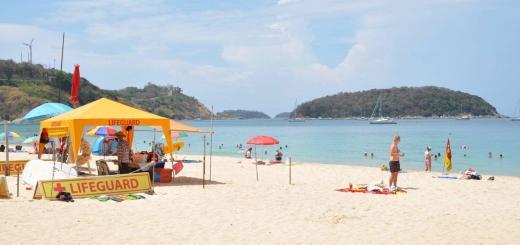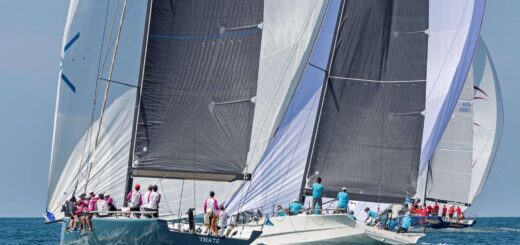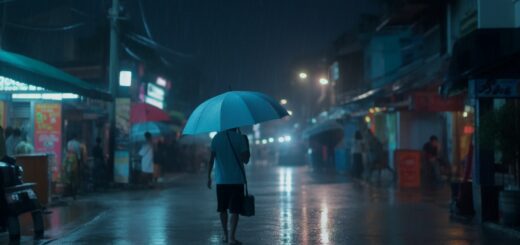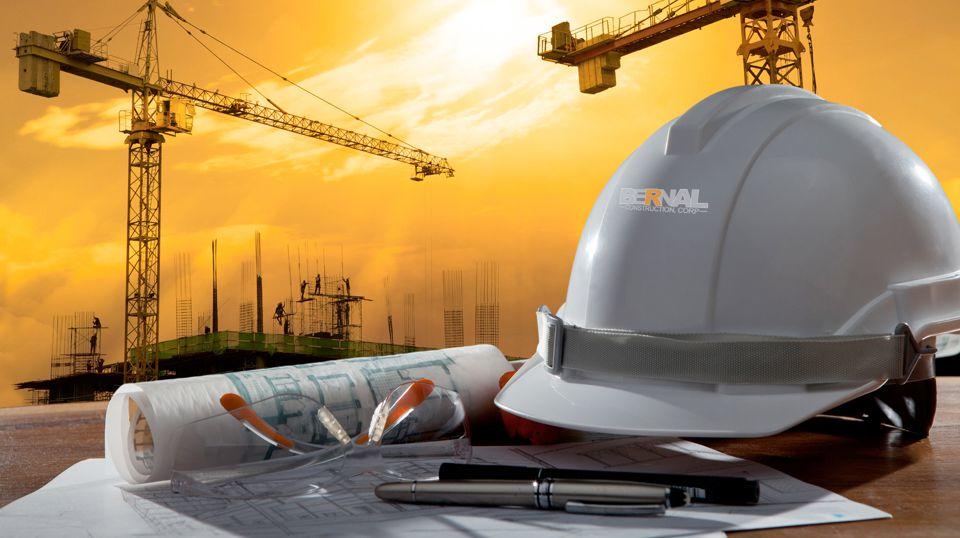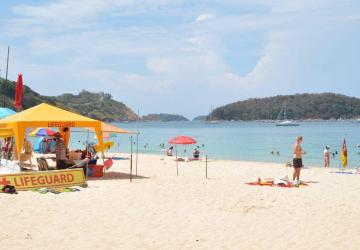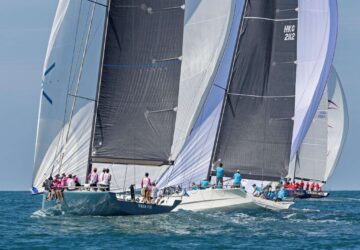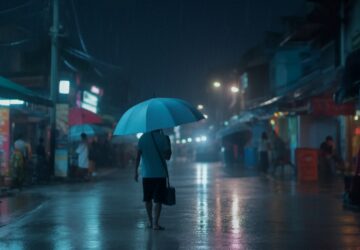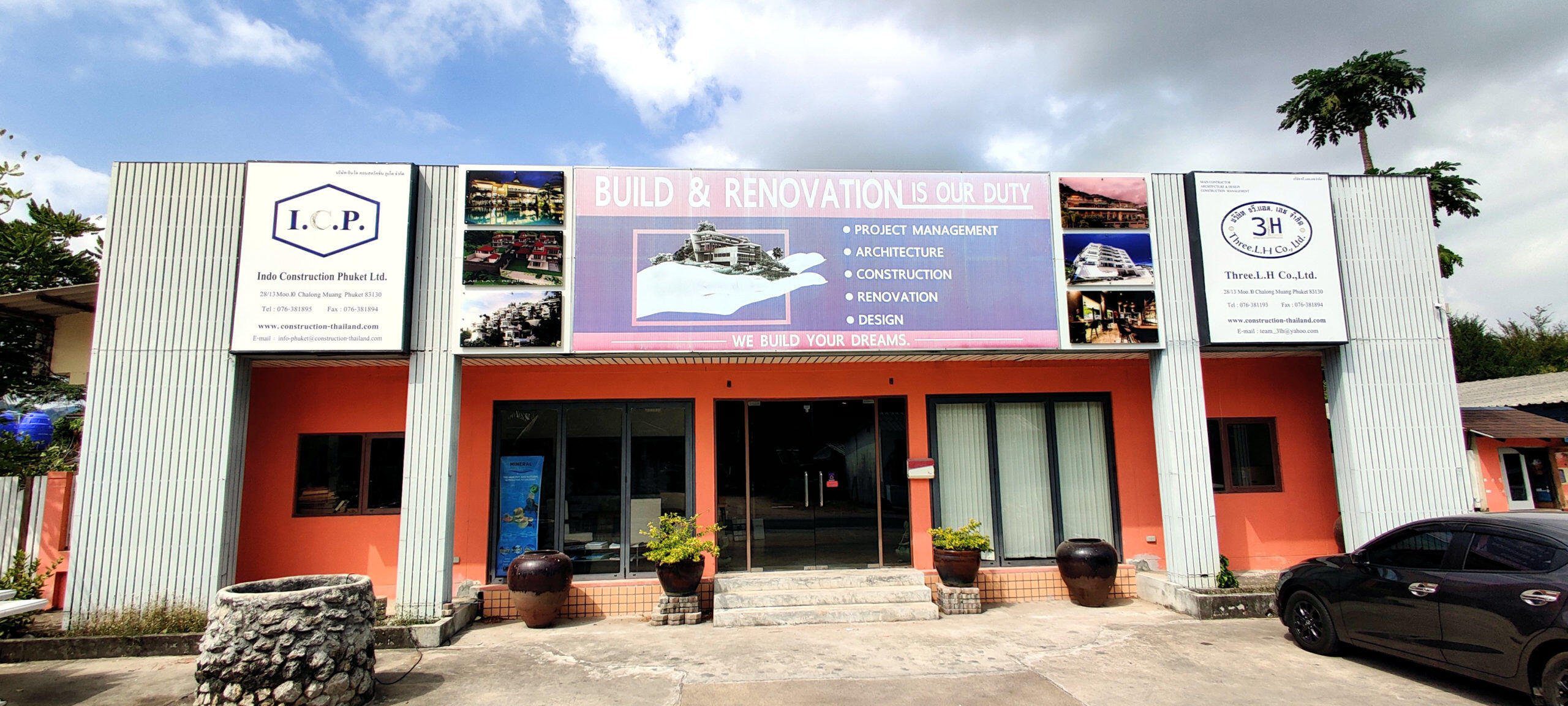
Cette publication est également disponible en :
![]() Français
Français
“Look,” Liberto tells me as he hands me a photocopy, “this is me 22 years ago.” I look at the black and white image of a seemingly young man, smiling, with a passionate and optimistic gaze. Yet, in this photo, he is already 47 years old. It’s hard for me to imagine that his eyes could retain such innocence after spending 14 years in the Saudi desert building palaces and nuclear shelters for the royal family.
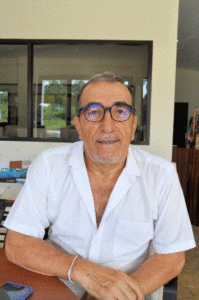
Liberto Heras Gomez, directeur chez Indo-Construction Phuket, Thaïlande
This photo accompanied an article in “Gavroche,” in which Hélène Vissière interviewed Liberto who was beginning to make his mark in the Southeast Asian construction market. Was it Thailand that gave him such a clear gaze?
“I arrived in Thailand at the beginning of ’82 to recruit teams of laborers for my projects in Saudi Arabia. At that time, Thais constituted the majority of the workforce for construction companies in the Gulf,” he tells me. “For me, encountering Thailand was a true shock: barely had I got off the plane that I found myself surrounded by smiles. People were extraordinarily kind and incredibly patient with a Farang like me who didn’t understand their language. Of course, back then, almost no one in Thailand spoke English, and even fewer spoke French. But through smiles, gestures, and patience, we still managed to communicate. Thailand in the ’82 was paradise, the complete opposite of what I had experienced until then.” In 1984, Liberto took the step. He established his residence in Thailand, where his wife is from. While continuing to work in Saudi Arabia, he would come to the Land of Smiles every two months to spend a fortnight and recharge.
Seven years later, he created his first company in Thailand and settled in Bangkok: Indo Construction & Engineering was born with the help of forty Thai laborers from his team, whom Liberto brought back from Saudi Arabia, and the support of former expats from the Emirates, settled in Bangkok. He would leave Saudi Arabia for good on June 2, 1994, tired of years of war and the rise of extremism. Twenty-two years later, Liberto Heras-Gomez is a notable figure in Phuket. He directs three companies, each with its specialty, focused on the construction industry. Despite this, it hasn’t gone to his head. “I was born into a family of laborers. My father and brother were masons, and I followed in their footsteps. When I was a kid, I worked 10 hours a day and when I became an adult, it was even worse.
I know the value of work, the cost of effort. And I can also recognize people who know how to work. Take the laborers, for example, the Thais who were with me in Arabia and who are still with me here: sometimes you get the impression that they do nothing or that they work too slowly. Well, I’ll tell you: try to keep up with their pace. You won’t manage it. After a few hours, you’ll collapse, but they continue, in the scorching heat or rain. We must not forget that all these skyscrapers in Bangkok, all these palaces in Arabia, it was the Thais who built them. And not just the engineers and architects in their air-conditioned offices: there are also all the Thai masons, mainly from Isan. Of course, nowadays, there are also many Burmese, Laotians, and Cambodians. But the Thai workforce remains very important and it is thanks to it that the Kingdom continues to move forward.”
His three companies now employ several hundred people. The core group of forty workers from the beginning has expanded to include brothers, cousins, spouses, children… Other more specialized skills have joined the team: architects, designers, engineers, graphic designers. All are part of a large family that thrives on work and good humor. “My first company, I.C.E., created in 1991, for construction in Thailand and export, explains Liberto. This means it creates a file from A to Z according to the buyer’s wishes. With a design office that integrates architecture, plans, specifications of materials, and specification book.
The client can then take the file to have their project built by anyone they want, in Thailand or elsewhere. The second, Indo Construction Phuket, founded in 2005, deals only with construction sites. As for my latest venture, 3LH, it is only two years old and is dedicated to design and furnishing.” “This allows your companies to completely follow a project from its conception to the handover of the keys,” I say. “Does this mean you don’t want to depend on anyone?” “I want to minimize as much as possible the number of interferences and the risks of delays. A delayed project can cost a lot when you consider the amount of daily penalties to be paid when a project is not completed on time. If that were to happen, I could only blame myself.” “Is this, in your way, an application of the self-sufficiency philosophy advocated by the late His Majesty, King Bhumibol Adulyadej?” Liberto’s gaze drifts off into the distance, as if my question caught him by surprise. – “King Bhumibol was a great king, a king builder.
He built Thailand as it is today. Before him, there were not all these dams, water reservoirs, and canal networks that irrigate the entire Kingdom. He also declared that his country had to be able to produce its own food to become as independent as possible from external markets… And when you see how it’s going in neighboring countries, you have to admit he was very right.” He shows me the black ribbon pinned to the left sleeve of his shirt: “You see, if I’ve attached this mourning sign, it’s because I have a lot of respect for King Bhumibol. In a way, it was he who allowed me to settle here and make a life for myself. So, yes, perhaps the way I manage my company is inspired by his philosophy.” I then ask him what his choices would be if everything were to be done over again, if he found himself 40 years younger. “I wouldn’t change much,” Liberto replies.
“I would definitely try to settle in Thailand before I was 30. That’s one of my few regrets, that of having arrived a bit late. Another regret is not having had the chance to watch my first four children grow up. I was always on the front line, seven days a week on the construction sites from 6 in the morning until late at night. In the building industry, you don’t have a family life. My youngest son, the fifth, is the only one I’ve had the chance to raise a bit myself.
Now, I start my day around 9 a.m. and finish earlier, which often allows me to take him to school. We talk a lot, I explain things in life to him; I teach him the value of money so that he doesn’t think everything falls into his lap easily. He already knows that without work, one is nothing. Our house is surrounded by the housing of our workers and the workshops. Every day, he can see the teams working, putting together furniture, going to the sites, or coming back from them. It’s the best education in the world.”
Cette publication est également disponible en :
![]() Français
Français

